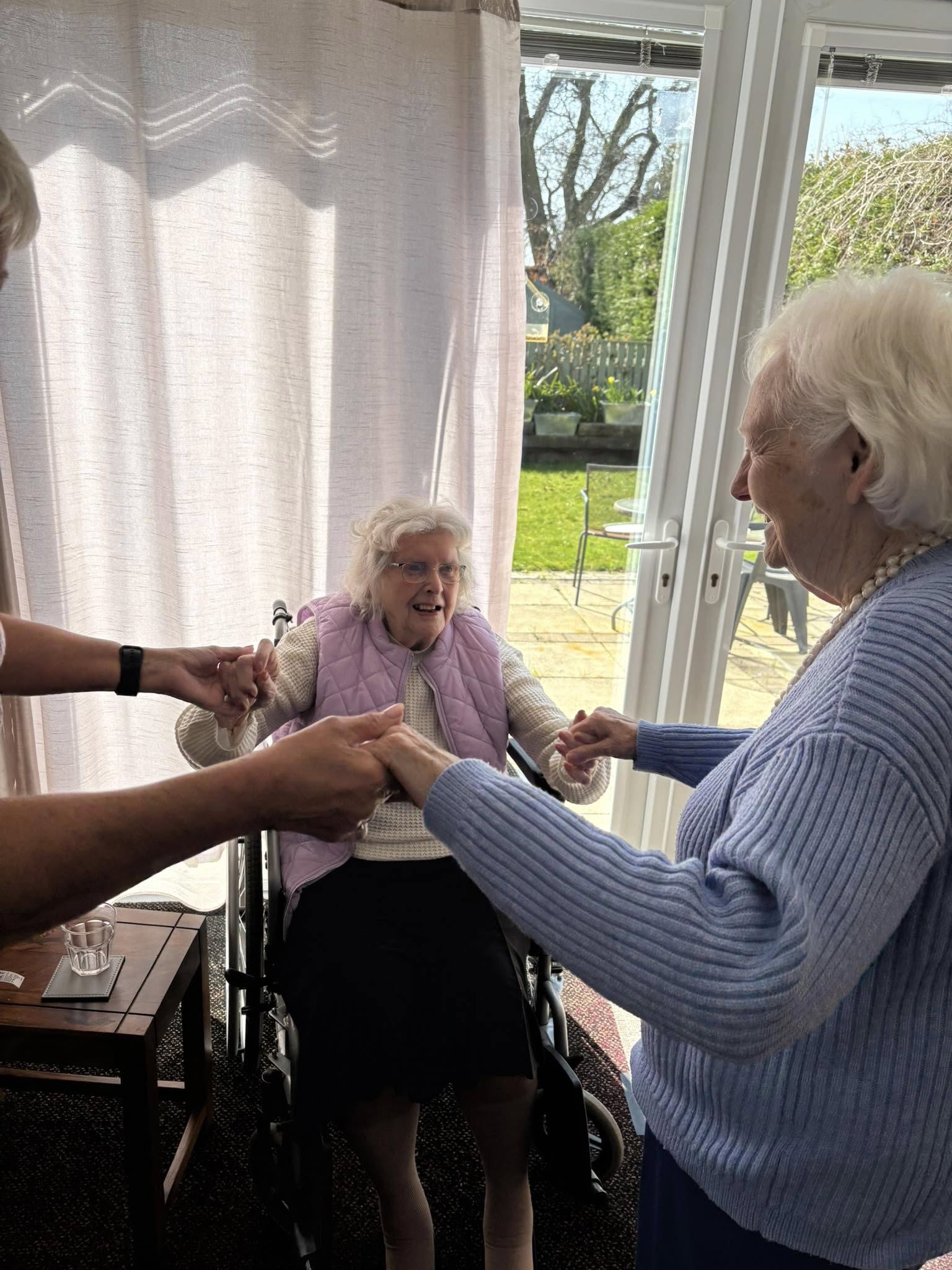Compassionate Communication
Tips from Strensall Day Care Centre Supervisor Donna Jameson.
Compassionate Communication
Tips from Strensall Day Care Centre Supervisor Donna Jameson.

Strensall Day Care Centre Supervisor Donna Jameson

The art of conversation…

Keeping minds active and spirits high.
Compassionate Communication
Tips from Strensall Day Care Centre Supervisor Donna Jameson
After many years working at Strensall Day Care Centre here in York, I’ve learned that good communication is at the heart of good care. Every day, our small, dedicated team works with wonderful people living with Alzheimer’s, Parkinson’s, and other dementia-related conditions, and I’ve seen firsthand how the right approach can transform someone’s day from confusing to comfortable.
The Art of Conversation
When chatting with our clients, patience and clarity make all the difference. Keep it simple and clear – short sentences and straightforward questions work best. I’ve found that too much information at once can be overwhelming. Giving people time to respond is equally important. A good tip is to count to ten in your head before offering help. Those extra moments allow people to process and respond at their own pace.
I emphasise asking one question at a time. Rather than asking, “Would you like tea or coffee, and do you want a biscuit with that?” I’ll ask, “Would you like some tea?” Then, after they answer, “Would you like a biscuit with it?” This approach prevents confusion and gives our clients the dignity of making clear choices.
We also focus on feelings, not facts. When a client tells me about his morning fishing trip (even though he’s been with us since breakfast), I smile and ask him what he caught. The joy in his eyes when he shares his “catch” is what matters, not correcting his timeline. And through it all, we remember that laughter is medicine. Some of our best moments at the Centre involve a good laugh together, even on what might be difficult days for some.
Beyond Words
Over my years at Strensall, I’ve noticed that what we don’t say often speaks louder than what we do. Eye contact works wonders – sitting at eye level, facing our members directly; these simple gestures show respect and help maintain focus during conversations. A genuine smile opens doors, too. Our team prioritises positive expressions and relaxed body language. You’d be amazed how tension can transfer from carer to client.
When words fail, gestures and pictures help. Touch can also be transformative for those who are comfortable with it. A gentle hand on the shoulder or holding hands while walking can provide tremendous reassurance. We’ve also learned to read the whole person, by that I mean, watching and listening for subtle changes in voice tone, the positioning of hands and body language tells you what words cannot.
Meeting Each Person Where They Are
Direct engagement matters tremendously. I always address our clients first, not their families or carers. Even if someone has advanced dementia, they deserve the dignity of being spoken to directly. This simple courtesy sets the tone for all interactions at our centre. Personalised care means personalised communication. We keep notes on each client’s communication preferences and share these insights among our team.
The environment of the Centre also affects conversation significantly. A simple change of scenery can completely change someone’s ability to engage, and with the warmer weather, we can get outside into nature and enjoy our sensory garden, which lifts everyone’s spirits.
Above all, patience is everything. We never finish sentences for our members unless they’ve indicated they want help. Those extra moments of waiting often lead to successful communication. Rushing creates anxiety for everyone, while an unhurried approach creates space for connection.
Keeping Minds Active, Spirits High
At Strensall, we use activities that stimulate both mind and mood. We don’t have a television because we place our focus on engagement for mind and body. We focus on arts and crafts, baking and everyone’s ability to produce something they are proud of.
Table games like Dominoes also create a natural connection between clients who might otherwise not interact, word games and our various styles of Bingo never fail to raise excitement and laughter. Yet, perhaps most powerful of all, music makes magic as we all sing together, dance or simply listen along.
Cultivating Calm
Creating a peaceful environment helps everyone communicate better. Routine reassures our members tremendously, so our daily schedule rarely changes, which provides comfort to those who find change difficult. The predictable rhythm of breakfast, activities, lunch, rest period, and afternoon social time creates a framework that supports better communication throughout the day.
We offer choices rather than challenges. We always present options, but keep them manageable: “Would you like to join the art group or listen to some music?” rather than “What would you like to do now?” This approach empowers our clients while preventing the anxiety that can come from too many possibilities.
Listening to understand is perhaps our most valuable tool, validating the emotions behind confused statements rather than contradicting the facts.
Finally, we recognise that togetherness is better than being alone. Even those who don’t actively participate in group activities benefit from being in the same space. Human connection doesn’t always need words, and sometimes the most profound communication happens in comfortable silence, watching birds at the feeder outside the window.
After all these years at Strensall, I know that behind every confused question, repeated story, or moment of frustration is a person wanting to be understood. With patience, creativity and genuine care, we can meet them where they are, and that moment of connection, when it happens, makes this work so worthwhile.
Donna Jameson is the Supervisor of Strensall Day Care Centre in York, where she has worked for ten years with a dedicated team supporting adults living with dementia, Alzheimer’s disease, and Parkinson’s.
